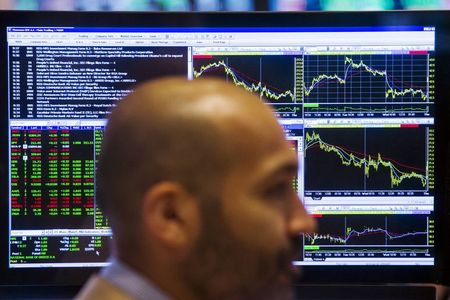Follow us on LinkedIn
Investors looking for a diversified portfolio may come across various options. While most investors can create their own portfolio of diversified stocks, they may invest in different funds. There are two types of common funds, including Exchange Traded Funds (ETFs) and mutual funds. There are many similarities and differences between both.
What are Exchange Traded Funds (ETFs)?
Exchange traded funds represent a fund that is a collection of securities, for example, stocks. These funds usually track an underlying security index. Similar to a company’s stocks, exchange traded funds get traded on an exchange. The price of these funds reflects the prices of the underlying securities within them. Similarly, the price may fluctuate with fluctuations in their market demand.
ETFs don’t only hold a single type of underlying asset. Instead, they may consist of various assets. Due to this feature, investors can use ETFs to build a diversified portfolio of investments. It is common practice to classify ETFs according to the underlying assets or indexes they track.
What are Mutual Funds?
Mutual funds represent pools of money collected from various investors. These investors may be individuals, companies, or other entities. They allow these investors a straightforward and effortless way to invest in the market. Usually, investors hire a fund manager to invest the money collected by them. In short, mutual funds are a collection of investments owned by a group of investors and managed by a fund manager.
When investing in a mutual fund, investors contribute to it or pool their money with other investors. The fund manager responsible for the funds invests in various financial assets, including stocks, bonds, etc. The manager handles the funds on a daily basis. There are several types of mutual funds that are prevalent, including money market, fixed income, and equity funds.
What are the differences between Exchange Traded Funds and Mutual Funds?
Exchange traded funds differ from mutual funds in several aspects.
Trade
Firstly, ETFs get traded on an exchange just like ordinary stocks. Usually, investors get ETFs through a broker. On the other hand, mutual funds don’t have the same characteristic. Investors have to obtain mutual funds directly from a fund company.
Price
Since ETFs have similar characteristics to stocks, their prices also fluctuate throughout the day. As mentioned, the fluctuations depend on several factors, including market factors and demand. On the other hand, mutual funds get priced once per day, usually when the market closes. The price depends on the net asset value.
Tax benefits
ETFs are more tax-efficient. Investors that hold ETFs have to pay taxes only when they sell their shares. The tax classifies as capital gains tax. On the other hand, mutual funds incur capital taxes when the shares within them get traded throughout the investment’s lifetime. Therefore, investors may have to incur several tax payments when holding mutual funds.
Transferability
Due to their nature, ETFs are usually straightforward to transfer. These are portable investments and easily disposable. In contrast, transferring mutual funds requires the fund’s position to be closed before the transfer can complete.
Management
ETFs don’t require active management. Therefore, they are also a more cost-effective option. While there are some ETFs that require active management, they are usually passively managed. On the other hand, mutual funds need a funds manager to manage them actively. Therefore, they may come with higher costs to investors.
Conclusion
Investors can invest in several assets at the same time through exchange traded and mutual funds. Exchange traded funds are a collection of securities traded on the market like regular stocks. Mutual funds, on the other hand, are a collection of investments managed by a fund manager. They differ from each other in several aspects, as mentioned above.
Further questions
What's your question? Ask it in the discussion forum
Have an answer to the questions below? Post it here or in the forum




